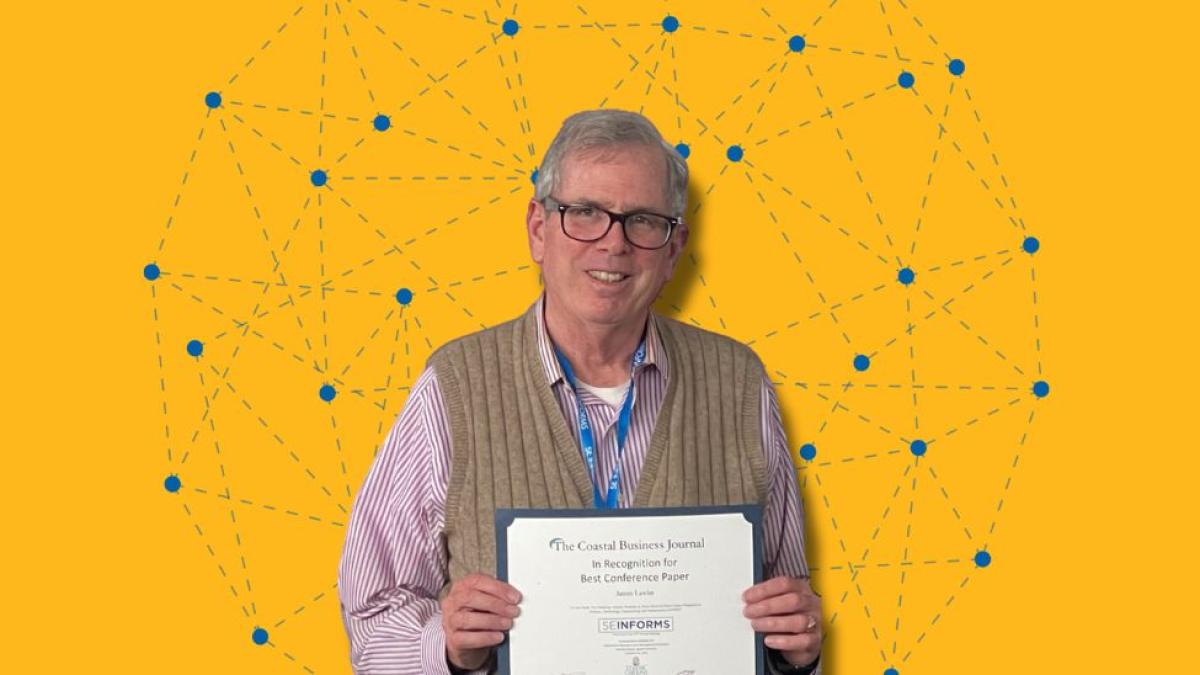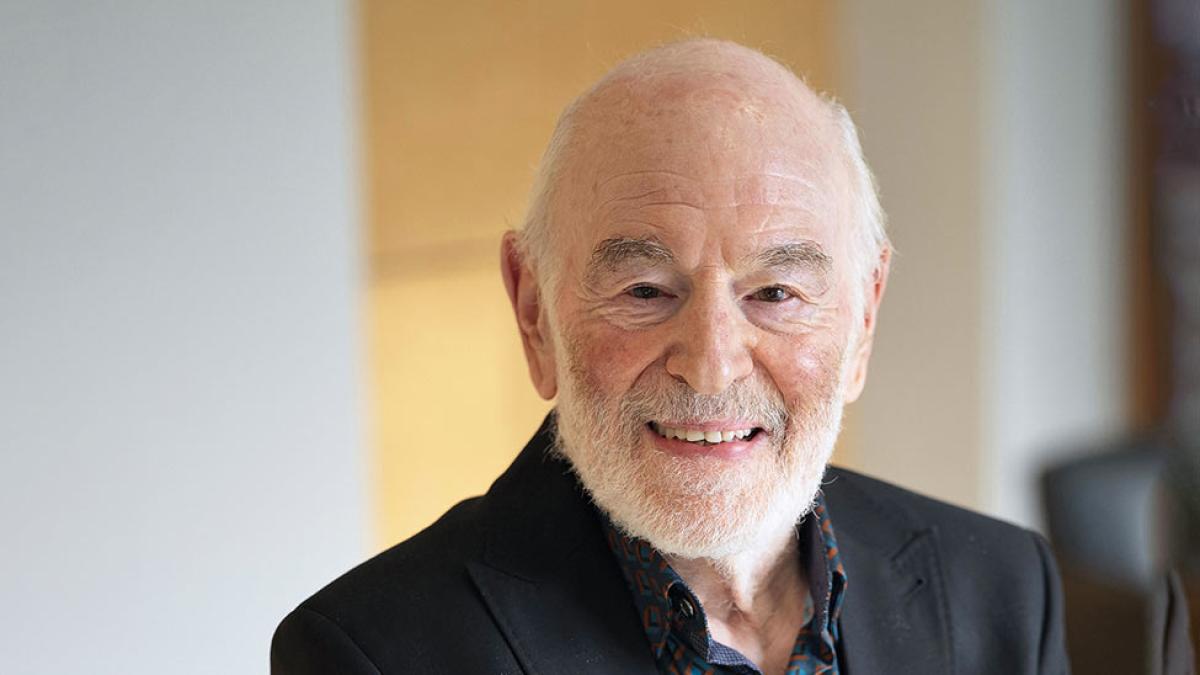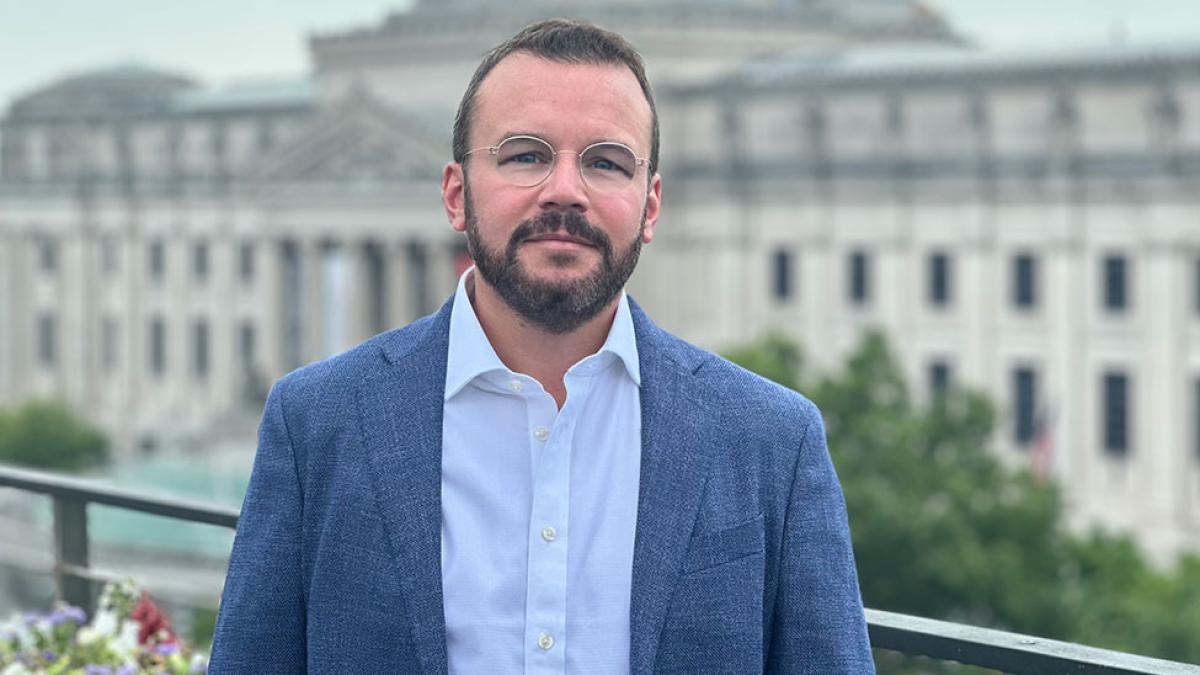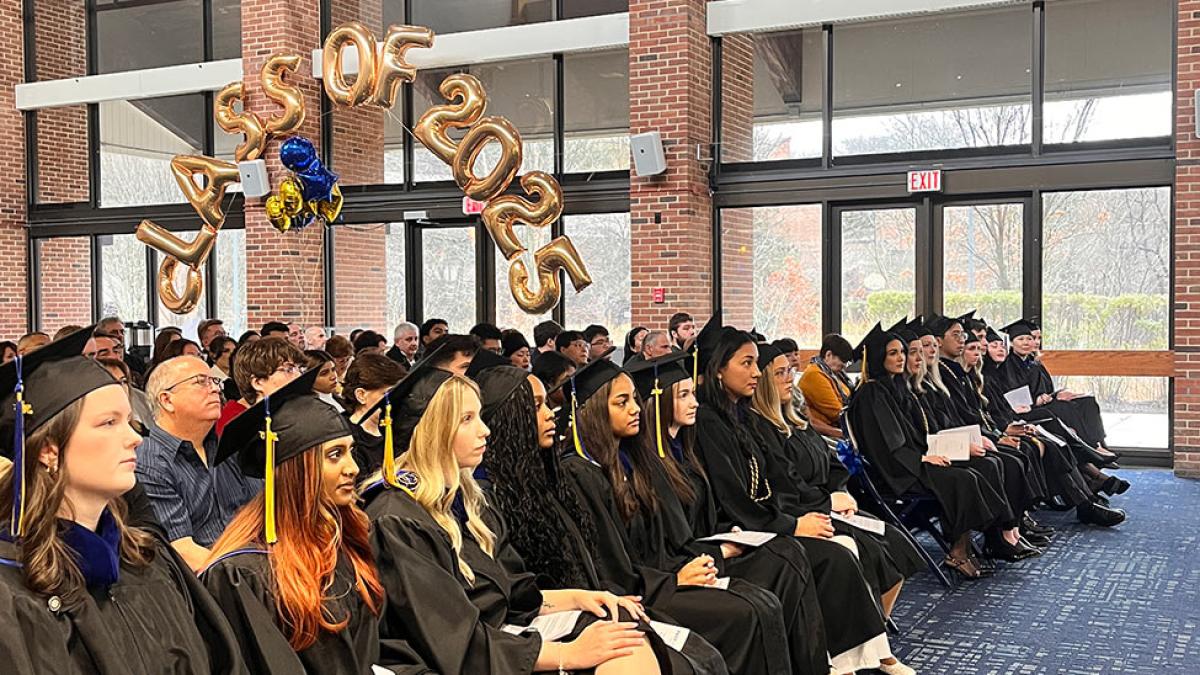The AI Scale Race is Over: Efficiency Defines 2026 Industry Trends
In StartupHub.ai, Seidenberg Professor David Sachs is quoted on how the AI industry is splitting into distinct lanes. Sachs notes that he sees two types of models emerging: “the large, we can do everything model, and the more focused ones like Julius or Perplexity.”
Printing Nueva York: Spanish-Language Media and Democracy
New York Almanack highlights the forthcoming book Printing Nueva York: Spanish-Language Print Culture, Media Change, and Democracy in the Late Nineteenth Century (NYU Press, 2026), by Interim Associate Provost of Academic Programs and Strategy Kelley Kreitz, who leads the digital mapping project C19LatinoNYC.org. The piece explores how Spanish-language writers and editors in 19th-century New York built influential media networks that supported anti-colonial movements and strengthened democratic ideals.
Hiring Autistic College Graduates in STEM: A Best-Practices Model
In Autism Spectrum News, Seidenberg Professor James Lawler outlines a best-practices model for hiring and supporting autistic college graduates in STEM fields. The article highlights strategies employers can use to build more inclusive workplaces while recognizing the strengths and perspectives autistic professionals bring to technical roles.

2025 Best Undergraduate Business Professors: Jessica Magaldi, Lubin School of Business at Pace University
Poets & Quants recently named Lubin Professor Jessica Magaldi among the 50 Best Undergraduate Business School Professors of 2025, highlighting her creative course “Music Industry Law (Taylor’s Version)”.
Psychic Leads Hit-And-Run Victim's Son, Chicago Police To Case-Changing Clue About Crash
Pace Haub Law Professor Bennett Gershman was featured across multiple outlets during winter break for commentary on criminal justice and accountability. In CBS News, he explains why hit-and-run cases are often difficult to prosecute, noting that convictions can hinge on whether prosecutors can gather enough evidence to overcome common defenses like “I didn’t realize what I did” or claims that it was dark or unclear. “It’s difficult to get enough evidence to prosecute effectively, and to convince a jury,” he said.

The American Family Isn't Collapsing, It's Adapting To Reality | Opinion
Dyson Professor Andrew Sciallo pens an op-ed in USA Today exploring how the American family isn’t collapsing—it’s evolving. He writes that today’s shifts in relationships, independence, and identity reflect adaptation to modern realities, even as older generations struggle with a version of the American dream no longer rooted in property or possessions.
Commentary: To Make Energy More Affordable, Double Down On Renewables
In his op-ed, “To Make Energy More Affordable, Double Down on Renewables,” published in the Times Union, Michael Hamersky, Executive Director of the Pace Energy and Climate Center, challenges the narrative that clean energy policies are responsible for rising energy costs. Drawing on decades of empirical data, Hamersky argues that renewable energy sources including wind, solar, and geothermal, offer long-term price stability and lower system-wide costs than continued reliance on fossil fuels. “The fossil fuel status quo created our current energy affordability crisis. If we continue to commit to that approach by subsidizing old power plants or building new pipelines, we will lock in a long-term obstacle to lower energy prices,” he writes.

Top 7 Accounting Scholarships You Should Know About in 2026
Looking for scholarships to help pay for your accounting degree? Whether you’re a prospective undergraduate or graduate student, read our guide to discover scholarship opportunities for accounting majors and graduate students at Pace. You’ll get tips and advice on how to apply and how to boost your chances of acceptance.


Scholarships can make a substantial difference for accounting students, especially those preparing for the CPA. In this post, we’ll break down key scholarship options, including programs from national organizations, firms, and universities to help you find the support you need to succeed.
Why Scholarships Matter for Accounting Majors
Accounting degrees, and especially those targeting the Certified Public Accountant (CPA) exam, can get expensive quickly. With CPA licensure requiring either 120 or 150 credit hours in combination with professional experience, many students need a fifth year or a combined degree program to meet that threshold.
Scholarships help ease the financial load, so you can focus on what really matters: landing educational opportunities in the field, acing CPA prep, and building real-world experience instead of juggling part-time jobs.
They’re also a critical tool for promoting access to opportunities, as securing scholarship support early can be your ticket to coveted Big Four involvement and a stronger return on investment throughout your career.
Invest in Your Future: Scholarship Opportunities for Accounting Students
If you are considering an undergraduate or graduate degree in accounting, now is the time to take the next step toward a rewarding and respected career. Accounting offers stability, strong earning potential, and the opportunity to make a meaningful impact in business and society. To support students who are ready to pursue this path, a wide range of scholarships is available to help reduce financial barriers and accelerate your professional journey.
An accounting education prepares students for the Certified Public Accountant, or CPA, credential, one of the most respected professional licenses in business. The CPA designation opens doors to diverse and high-impact careers in public accounting, corporate finance, consulting, government, and financial services. While the path to becoming a CPA requires dedication and discipline, it consistently delivers long-term professional recognition, career mobility, and financial rewards.
The accounting profession is currently facing a nationwide talent shortage, with demand far exceeding supply across firms, corporations, government agencies, and financial institutions. In response, universities and the profession have expanded scholarship opportunities to attract and support talented students who are ready to lead. Early financial support allows you to focus on academic excellence, pursue competitive internships, including opportunities with Big Four firms, and fully engage in professional and leadership development. By exploring and applying for these scholarships, you not only reduce the cost of your education but also invest in a future with exceptional career prospects and lasting professional value.
Types of Scholarships Accounting Majors Can Apply
Before you dive into specific awards, it’s helpful to understand the major categories of scholarships for accounting majors. Here’s a quick overview of where support typically comes from and how each type can help you.
National Professional Organizations
Many national accounting organizations offer scholarships for students. These awards often require strong academic performance and membership of the applicant or one of their family members. Think of well-known scholarships from organizations such as the American Institute of CPAs (AICPA) or the Public Company Accounting Oversight Board (PCAOB).
Firm-Sponsored Awards
Big Four firms and other major accounting companies invest in future talent through scholarships. These often target students in their fifth year or in combined degree programs who are working toward CPA eligibility. Beyond financial support, these awards frequently come with internship or recruitment opportunities, providing a direct line to these renowned firms.
Professional Associations
Associations such as the National Association of Black Accountants (NABA) and the Association of Latino Professionals For America (ALPFA) offer scholarships focused on diversity, professional development, and networking. These groups aim to support underrepresented students and provide a connection to communities and networks that boost their career growth.
Scholarships Through Universities
Many universities offer scholarships specifically for accounting majors, especially those pursuing the 150 credit hours required for CPA licensure through combined degree or fifth-year programs. These scholarships may link directly to internship pipelines or firm partnerships, helping you build connections while you study.
Top Accounting Scholarships to Consider in 2026
Now that you know the types of scholarships available, let’s look at some specific opportunities. These awards can help you fund your degree, strengthen your CPA readiness, and build the professional connections that give you a career edge. Deadlines and amounts vary, so plan to give yourself the best shot at being named a recipient.
National Professional Organizations
- AICPA Foundation Scholarship for Future CPAs
- Amount: $5,000 to $10,000 per recipient
- Deadline: March 15, 2026
- Eligibility: Applicants must be U.S. citizens or legal permanent residents in good academic standing with a minimum 3.0 GPA (on a 4.0 scale). They must have completed at least 30 semester hours of college coursework, including six hours in accounting, by the end of the spring semester. AICPA Student Affiliate membership is also required (free to join).
- Benefits: Around 100 students are selected annually as AICPA Legacy Scholars, joining a connected community of aspiring accountants dedicated to advancing their education and careers
- Public Company Accounting Oversight Board (PCAOB) Scholars Program
- Amount: $15,000 per recipient
- Deadline: Funds are awarded for classes that start on or after August 1; deadlines are set by nominating institutions
- Eligibility: Students must be nominated by their school and enrolled in an undergrad or grad accounting program at a PCAOB-designated U.S. institution, starting classes on or after August 1 of the award year. They must have a 3.3 GPA or rank in the top third of their class, show strong ethics, demonstrate financial need, and not be a PCAOB employee or related to one. The award is merit-based, though the program encourages consideration of students from historically underrepresented groups in accounting.
- Benefits: Recognizes academic excellence and supports students committed to pursuing careers in public accounting.
Firm-Sponsored Awards
- Deloitte Foundation Accounting Scholars
- Amount: 100% of tuition and academic fees, excluding books and living expenses, if students maintain a 3.0 or higher GPA for all semesters and upon graduation.
- Deadline: April 1, 2026
- Eligibility: Eligibility requirements vary among the 25 participating schools. See the scholarship website for an exact breakdown.
- Benefits: Supports scholarships for students pursuing a five-year accelerated master’s in tax or accounting with a focus in audit, advisory, or tax.
- KPMG Fund for Excellence in Accounting
- Amount: $5,000 ($2,500 for the fall semester and $2,500 for the spring semester)
- Deadline: TBD for 2026
- Eligibility: Outstanding students who are enrolled in the Lubin School of Business in a qualified accounting program and who maintain a 3.30 GPA Overall and in Accounting at Pace University.
- Benefits: The Scholarship Fund for Excellence in Accounting Education is established by KPMG Partners and professionals to promote educational excellence in accounting at Pace University's Lubin School of Business' Department of Accountancy. Recipients must demonstrate involvement and leadership in either co-curricular activities at Pace or service organizations in their local community or high school.
- EY Accounting Scholarships at Pace
- Amount: $5,000 ($2,500 for the fall semester and $2,500 for the spring semester)
- Deadline: May, annually
- Eligibility: Open to Lubin School of Business accounting students with a 3.30 GPA or higher, these awards recognize those who show strong leadership and active involvement in campus activities, community service, or high school organizations.
- Benefits: The Ernst & Young Fund for Excellence in Accounting Education was established by Ernst & Young LLP to promote educational excellence in accounting at Pace University. Students may receive this award for no more than three academic years, provided they remain eligible according to scholarship stipulations.
Professional Associations
- National Association of Black Accountants (NABA) National Scholarships
- Amount: Up to $10,000
- Deadline: TBD for 2026
- Eligibility: NABA Foundation scholarships are open to applicants of all races who meet the eligibility criteria and are active members of the National Association of Black Accountants. They should be pursuing a bachelor’s or graduate degree in accounting, business, or finance.
- Benefits: For NABA student members earning an undergrad or grad degree in accounting or a related field.
- Association of Latino Professionals for America (ALPFA) Scholarships
- Amount: Up to $10,000
- Deadline: February 27, 2026
- Eligibility: Candidates of any race, ethnicity, or nationality are welcome to apply. Applicants must have a minimum GPA of 2.5 and an active Premium ALPFA National student or professional membership. Awards go to those with the highest scores from ALPFA judges.
- Benefits: The program supports students across various business and related fields, including international relations and HR, to economics, hospitality, and IT.
Scholarships Through Your University
Many universities offer scholarships that don’t always show up on national databases. These targeted awards are designed to support specific recruiting goals through partnerships with accounting firms. Here’s what you can expect from these university-affiliated scholarships:
- Support for students preparing for the crucial fifth year to meet CPA requirements
- Financial aid tailored to ease the cost of extended education
- On-campus access to exclusive internship pipelines and firm connections
- Awards that combine merit, financial need, and career readiness
Scholarships for Lubin Students at Pace University
Aside from the previously listed accounting scholarships, Pace University offers standout scholarship opportunities designed to help accounting students succeed, particularly those gearing up for their fifth year. The Lubin School of Business provides merit- and need-based awards to help alleviate the financial load.
- The Janetschek Professional Growth Fund provides financial support to qualified Lubin undergraduate and graduate students seeking business-related development beyond their academic programs. This may include skills training, credential preparation, certifications, and related co-curricular education and activities that develop professional competencies, complementing their program of study. The Janetschek Professional Growth Scholarship committee will review applications and award funds based on the requested amount.
- Graduation Awards for Lubin Undergraduate Students are available to Lubin undergraduate students who have filed for graduation with the Office of the Registrar and have a minimum 3.20 cumulative GPA. Qualifying students can be eligible for the Professional Management Award and the Alumni Association Award.
For graduate students, there is also the Deloitte Foundation Accounting Scholars Program, which provides up to ten full-tuition scholarships to qualified applicants pursuing a fifth-year master’s degree in accounting with a concentration in audit, advisory, or tax.
Pace’s combined BBA/MS, BBA/MBA, and BBA/Taxation programs make it easier to meet CPA requirements while gaining advanced credentials. Additionally, Pace’s location in NYC gives students a direct line to Big Four firms and other top players in the accounting world, opening doors to internships, networking, and career-launching opportunities.
Ready to learn more? Check out Pace’s accounting programs to see which educational opportunities fit your goals.
How to Find and Win Accounting Scholarships: Tips and Tools
Landing accounting scholarships takes strategy and preparation. Use these tips and tools to navigate the process and boost your chances of success.
- When to apply: It’s never too early to start. Aim for the fall or winter of the academic year to meet deadlines with time to spare.
- Where to search: Start with a general search, but don’t stop at scholarship aggregator sites. Be sure to visit the scholarship websites of national professional organizations, firm-sponsored awards, professional associations, and university partnerships for the latest information.
- What makes a strong application: Keep your GPA competitive, gather strong letters of recommendation, and write a personal statement that’s authentic and compelling.
- What to avoid: Don’t wait until the last minute, skip eligibility requirements, or submit generic essays that don’t showcase your unique background and goals.
Remember, accounting scholarships can be a game-changer. Pace is ready to help you find and win the right ones so you can focus on your career. Request information today and take the next step.
FAQ
-
Absolutely. There are plenty of scholarships specifically for accounting students at all levels. Whether you’re aiming for CPA prep, diversity initiatives, or firm-sponsored awards, there’s funding out there to help you get ahead.
-
Top picks usually come from national groups like AICPA and PCAOB, or firm-backed scholarships from the Big Four. Scholarships tied to CPA readiness or diversity programs are also highly competitive and valuable.
-
Yes. Many scholarships support grad students, especially those pursuing master’s degrees or specialized accounting tracks needed for CPA licensure. Look for awards that focus on advanced credentials and career growth.
-
Start early and use multiple resources. Check professional organizations, university scholarship portals, and trusted websites. Staying organized and tailoring your application to specific requirements makes a big difference.
-
You’ll need to be enrolled in an accounting program that’s CPA-qualifying, typically a bachelor’s degree or higher that meets your state’s 150-credit-hour requirement. Many CPA scholarships target students in combined or five-year programs designed for licensure prep.
CHP Welcomes Distinguished Speakers for Winter Graduation Celebrations
Pleasantville, NY — Pace University’s College of Health Professions (CHP) proudly welcomed two distinguished keynote speakers for its winter graduation recognition ceremonies in Pleasantville on December 18: Andrea Dalzell, RN, known nationally as The Seated Nurse, for the Accelerated Bachelor of Science in Nursing (ABS) Pinning Ceremony and esteemed scholar Michael Iwama, PhD, MSc, BScOT, for the Occupational Therapy (OT) program.

Pleasantville, NY — Pace University’s College of Health Professions (CHP) proudly welcomed two distinguished keynote speakers for its winter graduation recognition ceremonies in Pleasantville on December 18: Andrea Dalzell, RN, known nationally as The Seated Nurse, for the Accelerated Bachelor of Science in Nursing (ABS) Pinning Ceremony and esteemed scholar Michael Iwama, PhD, MSc, BScOT, for the Occupational Therapy (OT) program.
The ABS in Nursing – Pleasantville Pinning Ceremony featured Andrea Dalzell, RN, a disability rights advocate, nurse, and trailblazer who made history as the first wheelchair user to work as a registered nurse in a New York City hospital. Dalzell’s address centered on perseverance, inclusion, and the importance of dismantling bias in healthcare and education.
“Andrea Dalzell remarks reflected the collaborative support, hope, and perseverance modeled by the nurses who shaped her journey, as well as her own unwavering determination to succeed despite significant obstacles,” said Esma D. Paljevic, EdD, RN, the associate dean and chief nursing officer for CHP’s Lienhard School of Nursing (LSN).“By confronting and breaking through long-standing biased thinking, she made history as the first seated nurse in a New York metropolitan hospital. Her continued success in the profession stands as a powerful testament to resilience, inclusion, and what is possible when determination is met with support. I was honored to know that we at Pace Nursing were the first nursing school to invite her to our Pinning Ceremony. Andrea epitomizes the profession of nursing in her ability to inspire others through perseverance, mentorship, and a steadfast commitment to the values that define the profession.”
Dr. Dalzell’s message also closely aligned with the College’s broader efforts to advance equity and inclusion within nursing education, and her attendance was sponsored by the Josiah Macy Jr. Foundation grant that was awarded to CHP earlier this year.
“Andrea Dalzell’s address at the ABS Pinning Ceremony was a powerful affirmation of the work we are advancing through the Josiah Macy Jr. Foundation grant,” said LSN Assistant Professor Michele Lopez, DHEd, RN. “Her voice underscores the importance of inclusion, access, and belonging in nursing education and reinforces our commitment to preparing a diverse nursing workforce equipped to meet the needs of all communities. Through her lived experience and leadership, Andrea embodies the goals of the Josiah Macy Jr. Foundation—advancing inclusive excellence and ensuring that nursing education reflects the diversity of the patients we serve.”
Across campus, another celebration was underway. Dr. Michael Iwama is an internationally recognized scholar and the creator of the Kawa Model, a culturally responsive framework that has become foundational in OT education worldwide. Dr. Iwama’s presence marked a meaningful milestone for students and faculty alike, many of whom have studied his work since their first semester in the program.
“Having Dr. Iwama as a keynote speaker was a special moment for the OT department, as he is a leading figure in the field. Our students have been learning about his innovative Kawa Model since the very first semester of classes… and many seem to resonate deeply with it. Getting to hear him speak in-person was a truly ‘full-circle’ moment for the students and faculty alike,” said John Damiao, PhD, chair, Department of Occupational Therapy
Together, these ceremonies highlighted Pace University’s commitment to academic excellence, inclusive leadership, and preparing future health professionals who are both skilled and deeply attuned to the diverse communities they will serve.